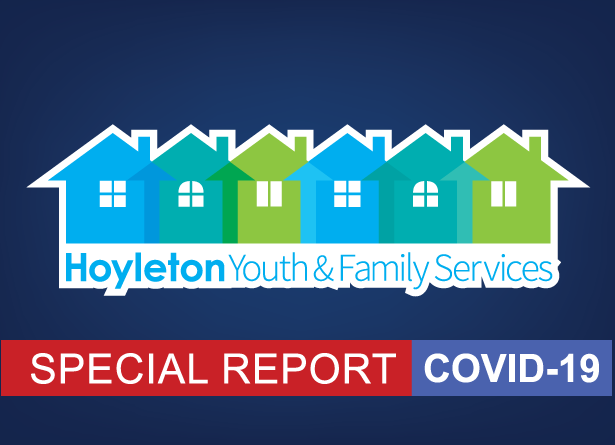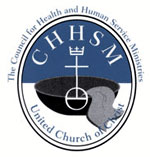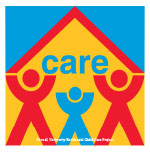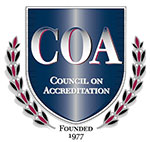PROGRAMS
GET INVOLVED
SUPPORT OUR MISSION

During this time of uncertainty, it is clear that we will continue to serve our clients and our communities while maintaining a healthy workplace for our employees. While communication is very fluid and the local, state, and federal governments are communicating continually, Hoyleton wants to do the same with you, our clients, supporters, and families.
We will continue to support you as Hoyleton has in the past. Hoyleton was started 125 years ago because of the pandemic of the Cholera Outbreak, and we will continue services during this COVID-19 pandemic crisis. We know that these days everyone is feeling anxious and are unsure of how each day looks from our regular ‘normal,’ but we WILL succeed in supporting each of you to the best we can in the days and weeks to come.
We have identified several-staff that can work from home and still be able to support their clients. Our 24-hour residential sites will remain open. We will adhere to CDC Guidelines as we continue planning to provide service to our children and families.
What is Hoyleton doing:
Over the next few days and weeks, we will be working to provide you multiple resources that will hopefully be tools for you to continue to support you and your families during this difficult time. We will be sharing information that families can get meals for their children, resources to help keep children occupied while at home, and support you when and where you need Hoyleton.
For our Foster Parents, please know we are continuing board payments as scheduled. Your Case Manager will be contacting you directly this week to help with immediate needs that you and your children may have.
For our donors, this is the time when we need you more than ever.
To our clients, while the delivery of our service might look different, we maintain our commitment to serving you and your family.
CDC Guidelines: (this is an active link to the CDC)
Take steps to protect yourself
Wash your hands often with soap and water for at least 20 seconds, especially after you have been in a public place, or after blowing your nose, coughing, or sneezing.
If soap and water are not readily available, use a hand sanitizer that contains at least 60% alcohol. Cover all surfaces of your hands and rub them together until they feel dry.
Avoid touching your eyes, nose, and mouth with unwashed hands.
Avoid close contact with people who are sick
Put distance between yourself and other people if COVID-19 is spreading in your community. This is especially important for people who are at higher risk of getting very sick.
Take steps to protect others
Stay home if you are sick, except to get medical care. Learn what to do if you are sick.
Cover your mouth and nose with a tissue when you cough or sneeze or use the inside of your elbow.
Throw used tissues in the trash.
Immediately wash your hands with soap and water for at least 20 seconds. If soap and water are not readily available, clean your hands with a hand sanitizer that contains at least 60% alcohol.
If you are sick: You should wear a facemask when you are around other people (e.g., sharing a room or vehicle) and before you enter a healthcare provider’s office. If you are not able to wear a facemask (for example, because it causes trouble breathing), then you should do your best to cover your coughs and sneezes, and people who are caring for you should wear a facemask if they enter your room. Learn what to do if you are sick.
If you are NOT sick: You do not need to wear a facemask unless you are caring for someone who is sick (and they are not able to wear a facemask). Facemasks may be in short supply and they should be saved for caregivers.
Clean AND disinfect frequently touched surfaces daily. This includes tables, doorknobs, light switches, countertops, handles, desks, phones, keyboards, toilets, faucets, and sinks.
If surfaces are dirty, clean them: Use detergent or soap and water prior to disinfection.


